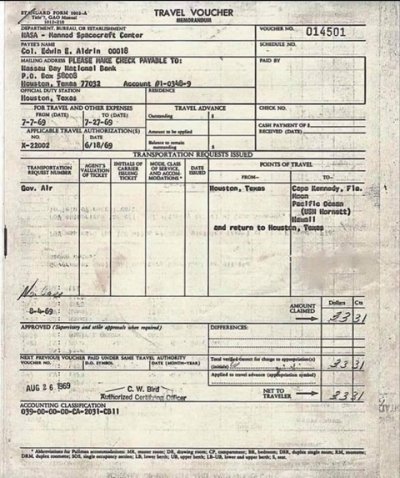I came across this video of the minutes leading up to landing, and watched twice, pausing and repeating a number of sections. The cool thing is, they have the flight info and some video, plus the two separate communications going on at once - the on ground mission control talking among themselves, and then the mission control to the astronauts.
There is
a lot going on, conversations about the fuel (at one point, someone says "fuel crit", and some one else says "he didn't want to say 'critical'"!). I had to keep hitting 10 second replay to catch things.
At one point close to landing, "Flight" basically tells everyone to shut up,
except for fuel call-outs.
And you can hear Aldrin and Armstrong calling out the 1202 ans 1201 alarms, which they apparently didn't fully understand (there are some other excellent videos on that). Short story, the alarms were due to an unintended radar unit left on, and it just was too much data for that computer to handle. But it did what it was designed to do, a very quick re-boot, try again, then it eventually over-loaded again, rinse/repeat. Seems ground was confident enough in how the craft was responding, that they decided to ignore the alarms.
They were having problems with keeping the high gain antenna aimed (high gain means it is very directional, like most TV antennas and unlike the old car antenna, a single rod which is omni-directional, so you pick up the radio station regardless of your direction). The 'skirts' they added to deflect heat from the engines were interfering with the antenna in some positions. It took me a while, but I was trying to figure out how they communicated at this point, but it was Michael Collins who still had comm to ground, and he relayed the messages to get their antenna re-directed. Gotta give Collins his due, he gets overlooked!
There are a few critical points where they need to make a go/no-go decision, and be ready to abort, one was really close to the landing time. Hard to keep cool under that kind of pressure! But they did.
Enjoy!
A detailed account of every second of the Apollo 11 descent and landing. The video combines data from the onboard computer for altitude and pitch angle, 16mm film that was shot throughout the descent at 6 frames per second. The audio recording is from two sources. The air/ground transmissions are on the left stereo channel and the mission control flight director loop is on the right channel. Subtitles are included to aid comprehension. This is part of the Apollo Flight Journal, Apollo 11 collection.
-ERD50

